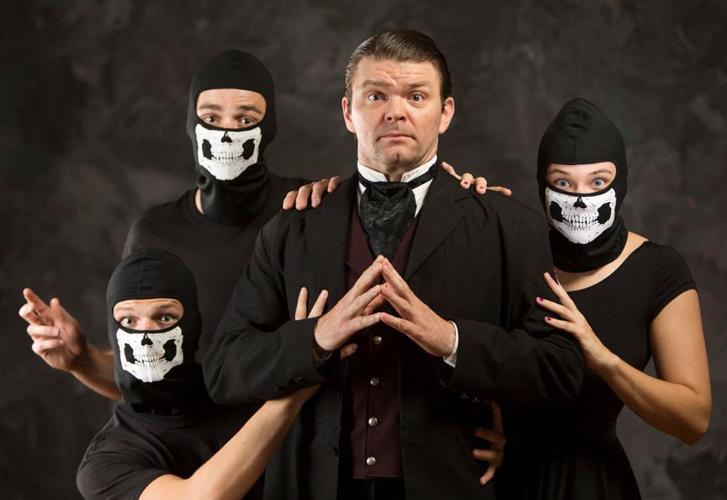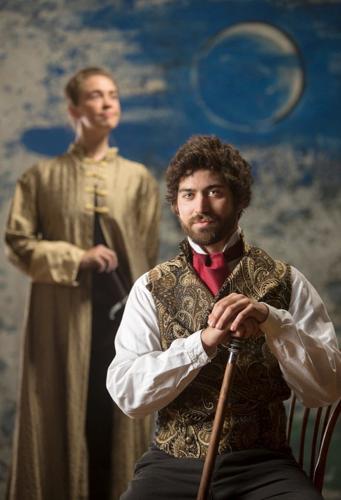Christopher Johnson loves Oscar Wilde.
He loves his essays, his plays, his novels.
And he especially loves his short stories — they are wrapped like fairy tales but are packed with eloquent prose, a sharp wit and unexpected twists.
Last summer, Johnson adapted Wilde’s novel “The Picture of Dorian Grey,” for The Rogue Theatre.
This summer, it’s three short stories by Wilde. “A House of Pomegranates,” a co-production between the Rogue and Artifact Dance Project, opens in previews Thursday, July 6.
“I love these stories so much,” says Johnson. “I love all his short stories, but these three are from different collections, and these are my favorite from each.”
Those stories
- “Lord Arthur Savile’s Crime: A Study of Duty” is from Wilde’s 1891 collection, “Lord Arthur Savile’s Crime.” When Lord Arthur Savile has his palm read he finds that he is destined to commit a murder. He plans to marry but figures he best fulfill that murder destiny first.
- “The Happy Prince” was in Wilde’s 1888 collection of children’s stories, “The Happy Prince and Other Tales.” A swallow abandoned by his flock meets the statue of the late Happy Prince, which looks over a town riddled with poverty and misery. The statue asks the swallow to take the jewels embedded in the sculpture and give them to the poor. A kind move but with sad consequences.
- “The Fisherman and his Soul” is from Wilde’s 1891 collection “A House of Pomegranates.” A fisherman catches a mermaid and promptly falls in love with her. She can marry him, she says, only if he sends his soul away. A witch shows him how to do that. It’s never good when one loses one’s soul.
These stories, says Johnson, “Expose us to so much more of who Wilde was as an artist. They completely subvert our expectations. He never ceases to tell us that everything we think we know is the opposite of what’s true.”
Fairy tales, but ...
These stories, like much of Wilde’s work — and like many fairy tales — are dark.
“I forget they are dark because they are so beautifully and so lusciously written and so passionately told,” says Johnson.
But he doesn’t think they are intended for youngsters.
“Wilde says of his short fiction that they were not intended for children nor the British public, but that’s who these stories are about,” says Johnson.
“They are fairy tales, but I think they are for the child in us that we abandoned for adulthood.”
Adapting a literary giant
“Wilde in one way is very easy to adapt to the stage,” says Johnson. “The witty dialogue and dramatic action and story beats are defining attributes.”
But that doesn’t mean it was easy taking the stories from book to script.
“You have to sacrifice a lot of the work,” says Johnson.
“The challenge is conveying the whole story” while having to leave out much of it.
“You have to pull it apart, put some things aside, and put it back together and not lose the poetry and scope and detail that it offers. … It’s tough, but it helps you figure out what is important about a story.”
Working with Artifact Dance
Last summer, The Rogue co-produced “Tales of the Jazz Age” with Artifact and the two companies discovered a symbiosis.
“We learned last year that we made each other’s work better by bringing our different processes,” says Johnson. “We inspire each other and find solutions to problems because we each bring (a different perspective). … Both of these companies are storytellers before anything else, and everything we do is in service to the story.”





